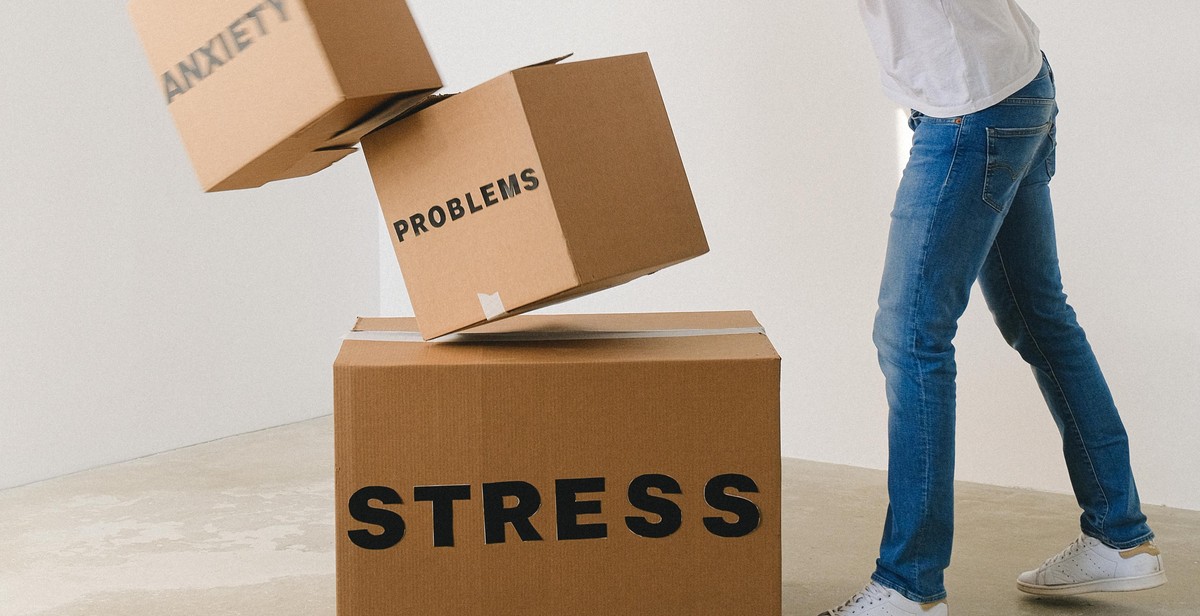Depression in Men: Uncovering the Hidden Signs
Depression is a mental health disorder that affects millions of people worldwide, regardless of age, gender, or ethnicity. However, depression in men often goes undiagnosed and untreated due to various reasons, including societal expectations and stigma surrounding mental health issues. The result is that many men suffer in silence, unaware that they are experiencing depression.
The Hidden Signs of Depression in Men
Depression in men can manifest in various ways, and often the symptoms are hidden or overlooked. While women are more likely to express their emotions and seek help, men tend to mask their feelings, leading to a delay in diagnosis and treatment.
Some common signs of depression in men include irritability, aggression, substance abuse, and risk-taking behavior. Men may also experience physical symptoms such as headaches, digestive problems, and fatigue, which are often mistaken for other medical conditions.
Why Men Struggle to Seek Help
There are various reasons why men find it challenging to seek help for depression. Society often expects men to be strong and self-reliant, and seeking help for mental health issues is seen as a sign of weakness. Men may also fear being judged or stigmatized if they admit to having a mental health problem.
Additionally, men may not recognize the symptoms of depression or may not believe that they are experiencing a mental health disorder. Instead, they may attribute their symptoms to stress, work pressure, or other external factors.
Conclusion
Depression in men is a serious issue that needs to be addressed. By recognizing the hidden signs of depression and breaking down the stigma surrounding mental health issues, we can encourage men to seek help and get the treatment they need to improve their mental health and overall well-being.

Understanding Depression in Men
Depression is a mental illness that affects millions of people worldwide. It is a common misconception that depression only affects women, but the truth is that depression can affect anyone, including men. Depression in men is often overlooked and underdiagnosed, making it difficult for men to seek help and receive appropriate treatment.
What is Depression?
Depression is a mental health disorder that causes persistent feelings of sadness, hopelessness, and loss of interest in activities that were once enjoyable. Depression can affect a person’s ability to function in their daily life, including work, relationships, and personal well-being.
Why is Depression in Men Overlooked?
Depression in men is often overlooked due to social stigma and gender stereotypes. Men are often expected to be strong, independent, and unemotional, making it difficult for them to admit to struggling with their mental health. Additionally, men may experience different symptoms of depression than women, such as anger, irritability, and aggression, which can be mistaken for other issues.
Statistics on Depression in Men
According to the National Institute of Mental Health, over six million men in the United States experience depression each year. However, the actual number of men affected by depression may be much higher, as many men do not seek help or receive a proper diagnosis. Additionally, men are more likely to die by suicide than women, with depression being a significant contributing factor.
| Depression Statistics in Men | Numbers |
|---|---|
| Men affected by depression in the US each year | 6 million |
| Men more likely to die by suicide than women | 3.5 times |
It is essential for men to understand the signs and symptoms of depression and to seek help if they are struggling with their mental health. With appropriate treatment, depression is a manageable condition that can improve a person’s quality of life.
Signs and Symptoms of Depression in Men
Depression is a mental illness that can affect anyone, regardless of gender. However, men are often less likely to seek help for their depression, making it harder to diagnose and treat. Here are some common signs and symptoms of depression in men:
Physical Symptoms of Depression in Men
- Chronic fatigue or lack of energy
- Difficulty sleeping or oversleeping
- Changes in appetite or weight
- Headaches or body aches
- Digestive problems
Emotional Symptoms of Depression in Men
- Feelings of sadness, hopelessness, or emptiness
- Loss of interest in hobbies or activities
- Irritability or anger
- Difficulty concentrating or making decisions
- Thoughts of suicide or self-harm
Behavioral Symptoms of Depression in Men
- Isolation or withdrawal from friends and family
- Inability to perform daily tasks or responsibilities
- Increased use of drugs or alcohol
- Engaging in risky behaviors
- Agitation or restlessness
It’s important to note that not all men with depression will experience the same symptoms. If you or a loved one is experiencing any of these symptoms, it’s important to seek professional help. Depression is a treatable illness, and with the right support, men can recover and lead fulfilling lives.
Causes of Depression in Men
Depression is a complex mental health disorder that can affect anyone, including men. While depression affects both men and women, men are less likely to seek help for their symptoms, making it difficult to diagnose and treat. There are several factors that can contribute to depression in men, including biological, environmental, and psychological factors.
Biological Factors
Biological factors such as hormonal imbalances, genetics, and brain chemistry can contribute to depression in men. Men who have a family history of depression are more likely to develop the condition themselves. Additionally, changes in hormone levels, such as those that occur during puberty or as a result of medical conditions like hypothyroidism, can also contribute to depression.
Environmental Factors
Environmental factors such as stress, trauma, and social isolation can also contribute to depression in men. Men who experience significant life changes, such as job loss, divorce, or the death of a loved one, are at an increased risk of developing depression. Additionally, men who experience social isolation or lack of social support are more likely to develop depression.
Psychological Factors
Psychological factors such as personality traits, coping mechanisms, and negative thinking patterns can also contribute to depression in men. Men who have a tendency to bottle up their emotions or have difficulty expressing their feelings may be more susceptible to developing depression. Additionally, men who have negative thinking patterns or a tendency to ruminate on negative thoughts may be more likely to develop depression.
| Factor | Description |
|---|---|
| Biological | Hormonal imbalances, genetics, and brain chemistry |
| Environmental | Stress, trauma, and social isolation |
| Psychological | Personality traits, coping mechanisms, and negative thinking patterns |

Treatment for Depression in Men
Depression is a serious mental health issue that requires treatment. There are several treatment options for depression in men, including therapy, medication, and lifestyle changes.
Therapy
Therapy, also known as talk therapy or counseling, is a common treatment option for depression. There are several types of therapy, including cognitive-behavioral therapy (CBT), interpersonal therapy (IPT), and psychodynamic therapy. Therapy can help men identify and change negative thought patterns and behaviors that contribute to depression. It can also provide a safe space for men to express their emotions and work through their feelings.
Medication
Antidepressant medication can be an effective treatment for depression in men. There are several types of antidepressants, including selective serotonin reuptake inhibitors (SSRIs), serotonin-norepinephrine reuptake inhibitors (SNRIs), and tricyclic antidepressants (TCAs). It’s important to work with a healthcare provider to find the right medication and dosage for each individual.
Lifestyle Changes
Lifestyle changes can also be an important part of treating depression in men. Regular exercise, a healthy diet, and getting enough sleep can all help improve mood and reduce symptoms of depression. It’s also important to avoid drugs and alcohol, which can worsen depression symptoms.
| Treatment Option | Pros | Cons |
|---|---|---|
| Therapy |
|
|
| Medication |
|
|
| Lifestyle Changes |
|
|

Supporting Men with Depression
Depression in men is often overlooked or dismissed due to societal expectations of masculinity. However, it is important to recognize the signs of depression and offer support to men who may be struggling with their mental health.
How to Talk to Men About Depression
Starting a conversation about depression with a man can be challenging, but it is important to approach the topic with empathy and understanding. Begin by expressing your concern and offering support. Avoid using language that may come across as judgmental or dismissive of their feelings.
Encourage them to seek professional help and offer to assist in finding a therapist or support group. Let them know that seeking help is a sign of strength, not weakness.
Supporting Men Through Treatment
Supporting men through treatment for depression can be a crucial factor in their recovery. Encourage them to stick to their treatment plan and attend therapy sessions or take medication as prescribed.
Offer to accompany them to appointments or check-ins and provide a listening ear when they need to talk. It is important to be patient and understanding, as recovery from depression can be a long process.
Creating a Safe and Supportive Environment
Creating a safe and supportive environment for men with depression can make a significant impact on their mental health. Encourage open communication and check in with them regularly to see how they are feeling.
Be mindful of any triggers that may worsen their symptoms and make necessary adjustments. Encourage them to engage in self-care activities and offer to participate in them together.
Remember, supporting men with depression requires patience, understanding, and empathy. With your support, they can overcome their struggles and lead fulfilling lives.

Conclusion
Depression in men is a serious issue that often goes unnoticed and untreated. It is important for men to recognize the hidden signs of depression and seek help when necessary. Remember, depression is not a weakness or a personal failure, it is a common mental health condition that can affect anyone.
If you or someone you know is struggling with depression, it is important to seek professional help. There are many resources available, including therapy, support groups, and medication. Don’t be afraid to reach out and ask for help. You don’t have to suffer in silence.
Takeaways
- Depression in men is often overlooked and underdiagnosed.
- Common symptoms of depression in men include anger, irritability, and substance abuse.
- Depression can have serious consequences, including suicide.
- It is important to seek professional help if you or someone you know is struggling with depression.
Resources
If you or someone you know is struggling with depression, there are many resources available:
| Resource | Description |
|---|---|
| National Institute of Mental Health | Information and resources on depression and other mental health conditions. |
| MentalHealth.gov | Information and resources on mental health, including depression. |
| National Helpline | A confidential, free, 24/7 hotline for individuals and families facing mental and/or substance use disorders. |
Remember, depression is treatable. With the right help and support, you can overcome this condition and live a fulfilling life.
